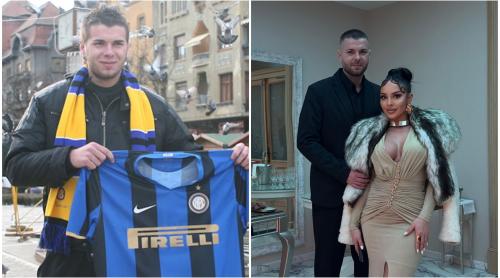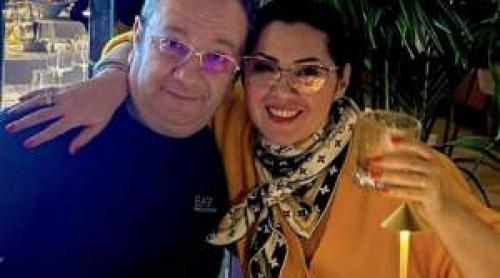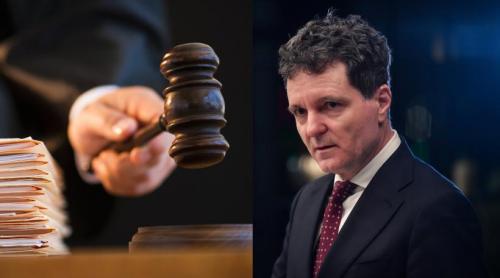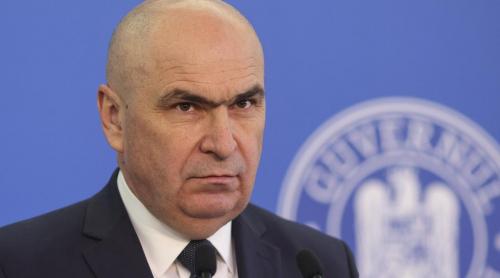Willingly and forced by the poverty, tens of teens sign up as volunteers for the testing of drugs. They swallow all kinds of things without knowing very well the side effects and without being covered by an extra medical insurance. For each research they take part in, they receive an average of 2 million lei.
They are students that take part in promotions for some extra money, there are others that act as walk-ons on TV shows. There are also students that act as patients without having any disease.
They are the volunteers on whom the drugs are tested. The producers have to find new dosages and equivalencies for the pills that are already on the market. Once they started working as patients, the youth, which are usually less than 25 years old, take pills like some ancient cavies. Even if they are as sound as a roach.
MODEL. "They keep the exact time when they give me the medicine, they run all kinds of tests on me, then I open my mouth such that the doctors are able to see that I swallowed the pill and not keep it under my tongue. I like it." Florin N., a 23 year old student, a stoutly-made young man, says. He is one of the people that often go to the Central Military Clinic Hospital in Bucharest to lay his body on the line by taking all kinds of medicines for the specialists to be able to see his reactions. He clearly admits he does it for money. He wants to take part in other tests too so he doesnât reveals his real name. "Enarpril, Enapril, or something like that. I donât know the damn name of the medicine they gave me". Willingly and forced by poverty only, Florin agreed to act as a hypertensive patient for one dayâ¦
THE FIGHT FOR HEALTH.
"This institution performs tests only on ill people", the person responsible for the clinical research at the Military Hospital, Colonel Doctor Tudor Nicolaie, says. In medical terms, they are the 3rd phase researches. "If, for example, it is observed that aspirin, besides lowering the body temperature, also calms the pain, this possibility is tested", the doctor says. In order to be chosen, the "subjects" have to "mould" accordingly to a certain profile, depending on the tested medicine. "During the last six years, since I became the person responsible for the clinical studies at the Military Hospital, no healthy people have been used", he repeats. He cannot allow a healthy "patient" to take Enalapril, a medicine for the lowering of the blood pressure. As a proof, he makes a call to the Hematology Department, he asks for the boss and asks him directly if there are any tests performed on healthy people in his department. Pause. Finally a "No" comes from the other end of the line. If he is right, then the young people we had talked to suffer from a disease they are not aware of.
However, Academician Professor Doctor Victor Voicu, the chief of the Pharmacology, Toxicology and Clinical Psycho-Pharmacology department of the Carol Davila University of Medicine and Pharmacy in Bucharest doesnât exclude the possibility that some of the people on whom the tests are performed are healthy. "The clinical tests can be performed on diseased people, when the testâs goal is to prove a therapeutic effect, or on healthy volunteer."
FREE TESTS.
In order to be chosen for research at the Military Hospital, a subject has to be run a lot of tests on: blood, urine, remember all his childhood diseases, mention any allergy. And, only after he is declared as sound as a roach, he can go further. "There is a competition for these tests", Florin says. In the hallway at Hematology, a blond 20 year old girl dabs her arm from where blood was taken. She is a student at Geography and comes for the second time to take a pill. "It is a good thing because, this way, I know my current health status. For free", she smiles as if she made a good April Foolâs Day joke.
She has also been offered food, depending on the period spent in hospital. The patients say it is good food.
SCREENING.
If you want to become a cavy, you have to know the right people to recommend you to the people. But it is possible without them as well. On trialâ¦
On Sunday, there are approximately 20 persons in the waiting room of the Hematology Department of the Military Hospital. They all have catheters in their hands and have name plates. A resident wearing white clothes asks me about my health. The eyes with a lot of make-up are curious but become suspicious and then show her compassion: "Did you come for the research just like that? Who told you? How did you find about this? ". She calms down and asks me if I had went to "screening". I hadnât been there, but she doesnât want to send me home. "Nothing - without screening", she concludes. "However, you should give me your name and phone number and we shall talk about in the second part of the month for another clinical research." The other "patients" show their superior smiles since they know they had been chosen. They had all passed the screening.
A week later, the doctors at the Military Hospital have interrupted the research in an week-end. Professor Voicu says it was because an international symposium in the field, which was also attended by doctors from the Military Hospital. "Daniela", a lady in her 40s, hasnât been announced so she went to take her stomach pill on Saturday as usual. She was surprised to find the Hematology Department locked and no doctor was present there to answer to her questions: "Last week it was crowded in here. I am not going to come anymore because they arenât dependable".
ABSTINENCE.
"I think it was something written in here according to which they have to take care of me for free in
case of any unpleasant consequences, but I canât remember exactly", Florin N. admits. He had signed everything they gave him.
Dr. Nicolaie says the patients are attentively monitored afterwards and they can always make a call if they donât feel that good.
The doctors ask the patients not to drink or smoke during the periods of the tests that can last from two weeks to six months. "You have to drink every once in a while. One pill cannot cause so much damage. I donât think they are crazy and give us pills to harm us!", Florin says angrily.
If you want you can give up at any time, no one forces you to continue. There were people to give up at the Military Hospital. "They are volunteers so they decide when they give up. However, most of the participants in this kind of studies are pleased with our services", Nicolaie completes.
TAKEN GAMBLE.
Sasa and Vadim are from Ukraine and they are students in Bucharest. They sat on the stairs from the Hematology department, bored with waiting for so much time, and they talked about their issues. The two young men have to be under observation for twelve more hours. Sasa is a student at the National School for Political and Administrative Studies and says he started to work as a cavy for the reward. His best performance is 3,000,000 lei for one research. He says that, now, he is on a medicine for diabetics, "Promitect, or something like that".
The other one, Vadim, is 18 years old, has blue eyes and he is quiet like a girl. He is a "rookie" at this. Sasa remembers that, at the first medicine, among the side effects there is also the risk of impotence. However, there is a one in a million chance for that to happen. What if you were the one in the million? The question brings a diffident smile on Sasaâs face.
Translated By SORIN BALAN



















